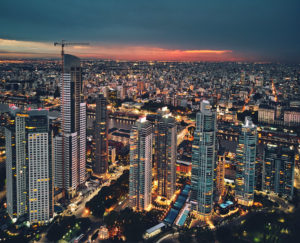Interconnected South American power grid – convenience or liability?
Early in the morning on Sunday (6/16), a blackout stripped all of mainland Argentina and Uruguay of power and also partially affected neighboring Paraguay, Chile, and Brazil due to the interconnectivity of these countries’ power grids. The sudden collapse of the power system raised serious resilience questions and spurred heavy criticism of Argentina’s electricity infrastructure operators and the government. Although there have been many statements released by energy officials defending the Argentine power system as “robust”, the general public often describes the infrastructure as being in a “state of disrepair, with substations and cables that were insufficiently upgraded as power rates remained largely frozen for years”. While scattered small-scale blackouts happen quite often, the scale of the latest outage, described as “unprecedented” by Argentinian President Mauricio Macri, laid bare the affected countries’ shortcomings in preparing for shocks.

Apart from Argentina, Uruguay has suffered the most from the accident, mainly due to its reliance on the former for its energy needs. For almost 40 years, Argentina and Uruguay’s power systems have been closely interlinked, which allows the neighboring countries to balance each other’s surpluses and shortfalls by removing the barriers to energy trade. The Argentine Secretariat of Energy announced that an electrical grid that serves both nations went down at 7:07 a.m. on Sunday, leaving only the archipelago of Tierra del Fuego unaffected, as it is not connected to the national grid. Overall, the outage disrupted the daily lives of more than 44 million people as traffic lights went down, trains stopped on their tracks, and businesses were forced to close. The outage also complicated local gubernatorial elections in a few provinces, although people were still able to cast their ballots by the light of their cellphones and candles. Moreover, the Argentine water company AySA asked customers to ration water because of issues arising from its distribution system’s connection to the affected power grid.
While the cause of the outage remains under investigation (which is expected to take up to 15 days to complete), there will be critical discussions on whether or not the current power grid system is reliable and resilient enough to prevent similar events from occurring in the future. However, Gerardo Rabinovich, an energy consultant and a Vice President of the Argentine Energy Institute, believes that such blackouts are not necessarily caused by a lack of the system’s robustness, “but rather a lack of coordination”. Thus, while disruptions to power lines can and will happen, such incidents should not cause a cascading failure, propagating to the whole system. As illustrated by the past weekend’s outage, operators and regulators must work with their counterparts across borders and interdependent infrastructure sectors. By understanding the complexities that exist in interconnected systems, owners, operators, and responders will be able to better prioritize their limited resources in order to maximize their resilience benefits.
Sources and Further Readings
‘Massive Failure’ in Power Grid Causes Blackout in Argentina and Uruguay – The New York Times
Argentine president Macri faces criticism after massive 14-hour power failure – France24
Argentina and Uruguay suffer ‘massive’ power outages to millions of homes – The Independent
Blackout leaves tens of millions in the dark in Argentina and Uruguay – Vox
